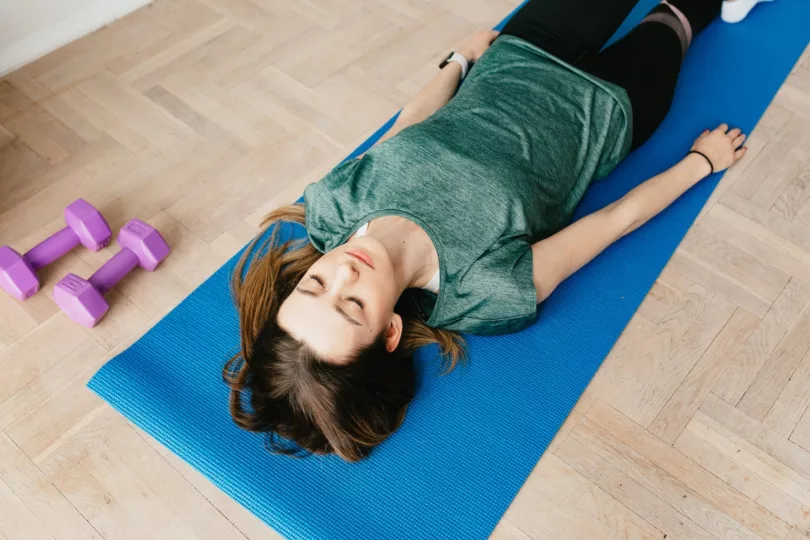Do you often find yourself lying awake in bed, counting sheep and willing to fall asleep? Are you tired of feeling groggy and unrested in the morning? Sleep meditation may be the answer to your problems. In this article, we’ll explore the benefits of sleep meditation, different techniques to help you fall asleep faster and stay asleep longer, and answer some of the frequently asked questions about this topic.
The Benefits of Sleep Meditation
Sleep meditation is a simple but powerful tool for improving the quality of your sleep. By clearing your mind and focusing on the present moment, you can let go of the stress and worries that keep you awake at night. Here are some of the benefits of incorporating sleep meditation into your routine:
- Reduced stress and anxiety: Sleep meditation helps you relax and release the stress and anxiety that can keep you up at night. By meditating before bed, you’ll create a peaceful state of mind that will make it easier for you to fall asleep and stay asleep throughout the night.
- Improved sleep quality: By focusing on the present moment and letting go of racing thoughts, you’ll be able to sleep deeper and wake up feeling refreshed and rejuvenated.
- Better mood and increased productivity: A good night’s sleep is essential for your overall well-being. When you sleep better, you’ll feel more energized and focused throughout the day, which can lead to increased productivity and a better mood.
Sleep Meditation Techniques
There are many different sleep meditation techniques to choose from, so it’s important to find the one that works best for you. Here are some of the most popular techniques:
- Progressive muscle relaxation: This technique involves tensing and relaxing different muscle groups one at a time to help you release tension and calm your mind.
- Guided meditation: Guided meditation involves listening to a voice that guides you through a series of relaxing images or thoughts.
- Body scan meditation: In this technique, you focus on each part of your body, starting at your toes and working your way up to the crown of your head, releasing tension and relaxing each muscle group as you go.
- Loving-kindness meditation: This technique involves focusing on feelings of love and kindness, both for yourself and others, to create a peaceful state of mind.
Frequently Asked Questions about Sleep Meditation
Here are some of the most common questions about sleep meditation and the answers you need to get started:
Q: How do I get started with sleep meditation?
A: To get started with sleep meditation, all you need is a quiet and comfortable place to lie down and a clear and focused mind. You can start with a simple breathing exercise or a guided meditation, and gradually incorporate more advanced techniques as you become more comfortable with the practice.
Q: How long should I meditate?
A: The length of your meditation sessions will depend on your individual needs and schedule. Some people prefer to meditate for just a few minutes before bed, while others may meditate for longer periods of time. Start with a length of time that feels comfortable and gradually increase as you become more comfortable with the practice.
Q: What if I can’t quiet my mind?
A: If you’re having trouble quieting your mind, try to focus on your breathing and return your attention to your breath whenever your thoughts start to wander. It’s also helpful to practice meditation during the day to help calm your mind and reduce stress. With time and practice, you’ll find it easier to quiet your mind and focus on the present moment during your sleep meditation sessions.
Conclusion:
Incorporating sleep meditation into your bedtime routine can help you fall asleep faster and stay asleep longer, leading to a deeper and more restful night. Whether you’re a beginner or a seasoned meditator, there is a sleep meditation technique that’s right for you. By taking the time to relax, release stress, and calm your mind, you’ll be on your way to a better night’s sleep and improved overall well-being. So why not give sleep meditation a try tonight and experience the benefits for yourself?







